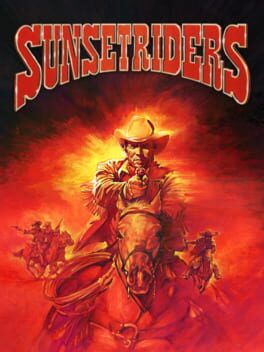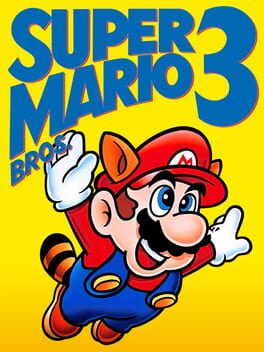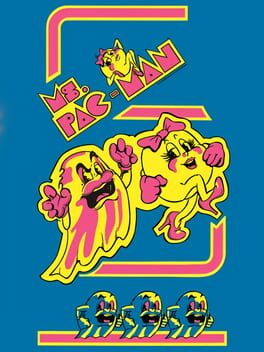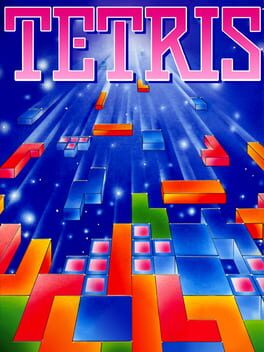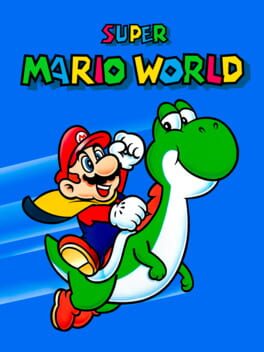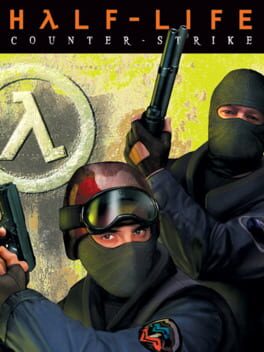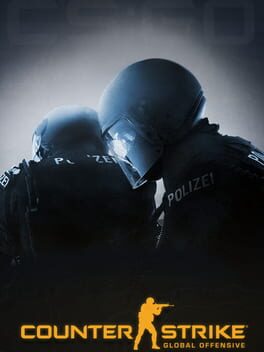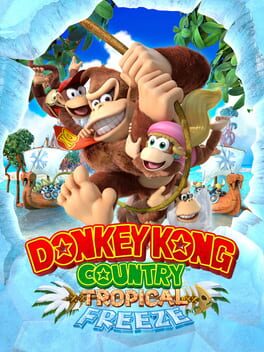thepaloalto
2019
This is Norman Reedus. There are many like him, but this one is mine.
Norman Reedus is my best friend. He is my life. I must master him as I must master my life.
Without me, Norman Reedus is useless. Without Norman Reedus, I am useless. I must navigate Norman Reedus true. I must navigate straighter than my enemy who is trying to catch me. I must navigate past him before he catches me. I will ...
Norman Reedus and I know that what counts in war is not the rounds we fire, the noise of our burst, nor the smoke we make. We know that it is the journey that counts. We will journey...
Norman Reedus is human, even as I, because he is my life. Thus, I will learn him as a brother. I will learn his weaknesses, his strength, his parts, his accessories, his sights and his bb. I will keep Norman Reedus clean and ready, even as I am clean and ready. We will become part of each other. We will ...
Before God, I swear this creed. Norman Reedus and I are the defenders of my country. We are the masters of our enemy. We are the saviors of my life.
So be it, until victory is America's and there is no enemy, but peace!
---
Honestly though, in some ways I think this game and Breath of the Wild are two separate solutions to the same design problem. Both developers recognized the stagnant nature of open world games and sought to change the player’s incentive on a fundamental level. Where Breath of the Wild incentivized exploration in terms of getting from point A to whatever you define as your own point B, Death Stranding incentivized exploration in terms of how you get from point A to point B. The challenge of Death Stranding is the traversal itself, and I completely understand why it receives criticisms of being a walking simulator. It is a walking simulator by design, that is its strength. It’s a beautiful game, not only in that its message to the player could not be more poignant in 2020, but also in how it ‘gameafies’ every last morsel of interaction, from how you converse with individuals, and how you load out your character, to how you choose a path, and how you choose to press on... despite the odds. Leading up to Breath of the Wild, it felt like a lot of games were going open world just because they could. Many complained about the ‘ubisoft-ification’ of the genre. Series like Assassin’s Creed and Red Dead Redemption took the open world genre to its natural conclusion. Death Stranding shows that the genre still has a lot to offer.
Norman Reedus is my best friend. He is my life. I must master him as I must master my life.
Without me, Norman Reedus is useless. Without Norman Reedus, I am useless. I must navigate Norman Reedus true. I must navigate straighter than my enemy who is trying to catch me. I must navigate past him before he catches me. I will ...
Norman Reedus and I know that what counts in war is not the rounds we fire, the noise of our burst, nor the smoke we make. We know that it is the journey that counts. We will journey...
Norman Reedus is human, even as I, because he is my life. Thus, I will learn him as a brother. I will learn his weaknesses, his strength, his parts, his accessories, his sights and his bb. I will keep Norman Reedus clean and ready, even as I am clean and ready. We will become part of each other. We will ...
Before God, I swear this creed. Norman Reedus and I are the defenders of my country. We are the masters of our enemy. We are the saviors of my life.
So be it, until victory is America's and there is no enemy, but peace!
---
Honestly though, in some ways I think this game and Breath of the Wild are two separate solutions to the same design problem. Both developers recognized the stagnant nature of open world games and sought to change the player’s incentive on a fundamental level. Where Breath of the Wild incentivized exploration in terms of getting from point A to whatever you define as your own point B, Death Stranding incentivized exploration in terms of how you get from point A to point B. The challenge of Death Stranding is the traversal itself, and I completely understand why it receives criticisms of being a walking simulator. It is a walking simulator by design, that is its strength. It’s a beautiful game, not only in that its message to the player could not be more poignant in 2020, but also in how it ‘gameafies’ every last morsel of interaction, from how you converse with individuals, and how you load out your character, to how you choose a path, and how you choose to press on... despite the odds. Leading up to Breath of the Wild, it felt like a lot of games were going open world just because they could. Many complained about the ‘ubisoft-ification’ of the genre. Series like Assassin’s Creed and Red Dead Redemption took the open world genre to its natural conclusion. Death Stranding shows that the genre still has a lot to offer.
1991
The Good, The Bad, and The Ugly of video games sounds like a perfect idea on paper. Have you seen the film? It would not have made a great game in the early 90s. Even now, it would have to rely heavily on its style and cut-scenes to create the sort of tension required to do that title justice. Instead, my younger self had to be satiated by Sunset Riders--the Young Guns of video games. Young Guns was a brief western romp starring the likes of Emilio Estevez and Kiefer Sutherland. It’s an awful movie. It takes itself far too seriously, the action sequences have no real tension, and overall it’s a tedious film. One of it’s saving graces is a drawn out scene where the regulators, Emilio Estevez included, take peyote and yell at some unseeable celestial being at the edge of some cliffs. That being said, it makes an amazing game.
1988
This is a Super Nintendo game that was somehow compressed to work on the Nintendo Entertainment System. The graphics feel next-gen, the design was innovative, and it ultimately defined the Nintendo charm that the company still relies upon today. Truly, the pinnacle of two dimensional platforming. Play the original Super Mario Brothers for fifteen minutes, then put this game on and just sit with that experience for a while. Think about how much the developers were able to pull from that original concept and perfect it. Think about how every Mario game since 1988 seeks to recreate this experience. Think about how many non-Mario games also took influence from this title. Oh yeah, I guess it is pretty fun too.
1982
Ultimately this is a core gaming experience. Ms. Pac-Man not only captures it’s era, but arguably defines it. Although other forms of the game exist, the arcade cabinet is the premier experience.The cabinet’s ms. pac man blue, sunny side up yellow, and passion pink call out to the prospective player no matter the location. As the player approaches the cabinet they may notice some wear on the left side of the frame where a person’s left hand would naturally rest. On a truly seasoned cabinet you may notice a similar yet less defined mark on its right side. Its hypnotic effect suspends time as the player and the machine become one, reality returns briefly as the machine pleads for more coins. The dance continues.
The much needed and long awaited rethinking of the Legend of Zelda franchise. Oddly enough, the end result was taking the series back to where it began, exploration. Could there have been better dungeons? I guess? Could the weapons have lasted a bit longer? Absolutely. But these choices were deliberate and further pushed the player to explore and interact with the environment around them. I believe that the endless criticism of the weapon degradation and the dungeons come from a failure to appreciate the underlying thesis of Breath of the Wild. Specifically, with the dungeons, they are the weakest part of the game--not because they aren’t as fleshed out as prior Zelda titles, but because they shouldn’t have been in this game at all. Instead, the shrines reinforce the exploration focus, and the game is stronger for it. The same is true of the weapon system, continually asking you to re-engage with the environment. Ultimately, it is a game that challenges you to push back against the game, and decide what you want to make of the experience. The further you dig in, the greater progression you feel, but it’s entirely optional. It’s a beautiful thing, and it’s bold. It was refreshing to see Nintendo still willing to take risks with even it’s most mainline franchises.
I made the mistake of skipping this back when it came out because I didn’t have an endless amount of funds to go towards gaming, and I was likely completely absorbed in my obsession with Halo 2. I suppose my educational endeavors may have also factored into the decision. Therefore, it will never mean as much to me as Metal Gear Solid 2, where my adoration of the title is potentially blinded by a sense of nostalgia towards that period of my life. Nevertheless, Metal Gear Solid 3 is just as impressive as its predecessor. Multiple boss battles in this game likely rank as the most memorable boss battles in all of gaming. Not because of their challenge, or their wacky character design, but instead because of their ability to take pre-conceived gaming designs, turn them on their head, and challenge the player to rethink how they should be approaching the game. Next level stuff. Coupled with the fact that it was my family tradition to watch James Bond films repeatedly, and it was inevitable that I would fall in love with this game.
1996
I received this game and a Nintendo 64 for Christmas of 1996. I remember begging my parents to let me take it to my grandmother's home where us cousins--of which I was the youngest--typically played the same rotation of Sorry!, Monopoly, and Clue. That Christmas was different. All of us huddled around a wood paneled television, passing the controller after each star, and even replaying some of the stars because it a segment just seemed so fun as you watched along. We didn’t even make it to the first Bowser encounter that day because we were having so much fun just exploring the opening moments. I have never been very close with my extended family, and this is honestly one of my best memories with all of them.
1989
Isn’t there a Tetris movie in the works, when is that supposed to come out? I think it started as a story about Alexey Pajitnov, and slowly got Hollywood-ed into some sort of sci-fi movie. Sometimes it is better to stick to the basics, and that is where Tetris succeeds. A newcomer to Tetris will understand the game-play loop within 5 minutes of picking up a controller. Yet no two games are alike, the player is always learning, becoming more efficient, getting better at thinking more steps ahead. It is all of video games culminating into a core experience. Tetris Effect came out in 2018, doesn’t change the formula at all, and somehow still ended up in plenty of game of the year discussions. Basics.
I remember seeing this game at Target when I was twelve and having no idea what it was. I just knew that it looked like James Bond: The Video Game based on the box, and as a fan of the films and games I had to have it. If you had asked me that day what my favorite game of all time was I might have said something like ATV Off Road Fury. MGS2 showed me all sorts of wacky shit in the best way possible. Revolver Ocelot seemed extremely bad-ass to me at the time, and characters like Fatman had just the right amount of childish humor to keep me engaged even if the larger strokes of the game were likely going over my head. I was an idiot then--I am an idiot now--but even this idiot can appreciate that Sons of Liberty is an all-timer.
1990
A refinement of the game-play proposal of Super Mario Bros. 3, with a growth in its scope. I believe that this was probably the title that tied the fate of this series with the fate of Nintendo as a whole. There may have been a world where the transition to the Super Nintendo failed to recapture the hearts of many, and the Mario series could have gone the way of F-Zero. As it’s first big series, such a misstep could have drastically changed Nintendo’s approach entirely. Although many hold this as the best Mario game, I don’t think it pushes the envelope as far as it’s prior iteration did. At the same time, it is the definitive Mario experience. The biggest leap here is its sound design. The music and other accompaniments felt like the biggest ‘next gen’ aspect of this entry. I suppose the introduction of the Yoshi game-play mechanic was probably also revolutionary at the time.
2000
I’ve certainly waxed poetic on this title countless times around the internet. I was lucky to come across this game as a local PC cafe opened up in my hometown. I had other friends who owned bicycles who were also interested in blasting awp shots at each other's virtual skulls. Not counting the typical birthday party or sleepover romp with Goldeneye, this game was my first dip into gaming as a social activity where the game itself was the focus. A good friend and I spent many a wonderful summer day holed up in our basements playing fy_iceworld for hours on end.
As I pursued my self inflicted torture that was post-graduate education in the United States of America, the comically lengthy reading assignments that were a nightly occurrence completely destroyed any energy that otherwise could have been used to socialize publicly. Thanks to Counter-Strike: Global Offensive, I was able to socialize every evening with angry, maladjusted gamers across the country in the comfort of my pajamas. This game and my teammates certainly didn’t need me, but god did I need them.
In 1994 I received a VHS tape in the mail, the tape was labeled Donkey Kong Country EXPOSED. I watched that tape more times than I am readily willing to admit. What I am willing to admit, is that Tropical Freeze shattered opinions that had formed in my mind when I was six years old. Donkey Kong Country is not the king of the ‘Kong’ series. I’m still holding my breath for another entry here, but they sort of took the series to it’s natural endpoint in terms of game-play.
1994
It’s unfortunate that I never got around to playing this until the release of the Super NES: Classic Edition in 2017. Even at that late date, the confidence in the design of the game was oddly refreshing. As you progress through the map, it continues to not only develop what your character is capable of, but also how traversal of the map takes place. It lends the feeling of a big open world to explore while implicitly guiding you through the map without the sense of linearity or incapacitation. It’s influence on Castlevania resulted in a new genre that I instinctively avoid despite my enjoyment of every game I’ve played within that definition.
2001
The escort mission, a chinese finger trap for developers. Where games before it would only briefly utilize the escort to limited success, Ico lives, breathes, and thrives by the strength of this mechanic. Heavy theatrics, screenplay-like writing, and complex puzzling be damned. Instead, Ico wallows in the escort mission and any meaning of the game is derived from the relationship forced upon the player through this system. Many games since take clear inspiration from this title, and Naughty Dog hot off of Crash Team Racing may have learned a thing or two playing Ico.

